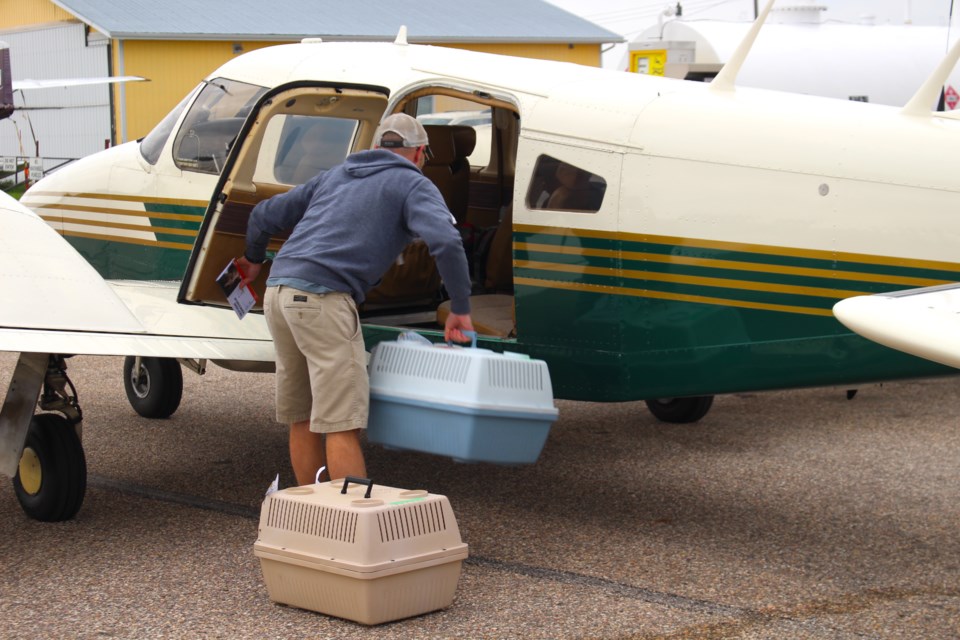BONNYVILLE – A plane ride from Bonnyville’s regional airport to Maple Ridge, B.C., will mark the beginning of a new journey for two senior cats from Bonnyville.
On July 3, staff from the Bonnyville and District SPCA waited on the tarmac for the arrival of Calgary veterinarian Robert Campbell, a volunteer pilot with the organization Canadian Wings of Rescue.
Campbell’s mission was to fly in, load up the two orange Tabby cats, and fly them to B.C. where they would be picked up and taken to Katie’s Place, an animal shelter and sanctuary for sick, elderly and homely animals.
The reason for the multi-organization collaboration was to offer a 10 and 13-year-old cat, who both tested positive for Feline Immunodeficiency Virus (FIV+), a second chance at being adopted or at the very least, to live out their remaining days at the B.C. animal sanctuary.
The tabby duo, nick-named GG, were lined up to be transferred from the Bonnyville SPCA to another Alberta animal shelter in hopes of improving their chances of being adopted at their advanced age. But, before the senior cats could be moved, they were required to be tested for Feline leukemia virus (FeLV) and FIV. Both cats' blood work came back FIV positive, preventing them from being transferred.
While FIV cannot spread to or infect humans and other animals, it can lead to a variety of illnesses and death due to the virus's impact on the immune system of the infected cat.
“The virus is spread through the saliva and is usually passed to other cats by bite wounds. In North America, about three to five per cent of tested cats are found to be infected with FIV,” according to the Amercian Assocation of Feline Practitioners.
FIV is more commonly found in male cats that are not neutered and in cats that fight with other cats, states the association. Among stray populations, the likelihood of a cat being positive for FIV or FeLV is even higher.
G and G, both male cats, were strays before being housed by the Bonnyville SPCA.
As there is no cure for FIV, veterinarians recommend that infected cats should live indoors so they don’t infect other cats. In animal shelters, FIV+ cats are separated from the general feline population to avoid the spread of the infection.
When G and G received an FIV+ diagnosis it posed an additional challenge for the Bonnyville SPCA, which already faces limited capacity and isolation space.
That is when Ashley Heberth, the shelter supervisor for the Bonnyville SPCA, did a deep dive into other animal shelters that are able and willing to accept senior animals that are FIV+.
The search led Heberth to Katie’s place, an animal shelter that can house up to 125 cats with separate enclosures for convalescent cats and for FIV/FeLV+ resident cats.
Once Katie’s Place agreed to take G and G in, the next step was finding a way to get them there. That led Herberth to Canadian Wings of Rescue.
Canadian Wings of Rescue has been working with animal rescue groups and volunteer pilots to offering low-cost transportation between animal shelters for over 11 years. Over 1,200 animals have been transported by the charity since its inception.




.jpg;w=120;h=80;mode=crop)